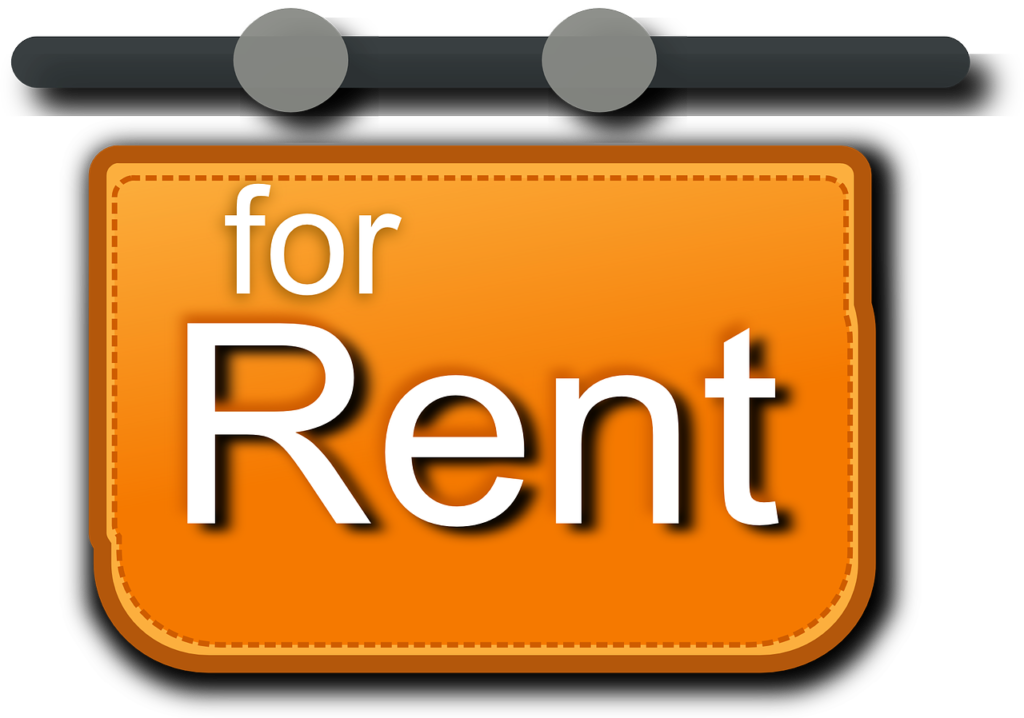Four strategies for how to real estate invest. Real estate investing proved to be a good way of making money.
There are many ways of doing it and some people find better results than others do, but the truth is that most real estate investors make money with their investment, and even more importantly: they make it moderately quickly.
It is possible to make money in this business if you know how to do it, but you have to start this business with your eyes open. We are not talking about something that will happen overnight, because if this was the case everyone would be doing it.

1. Investing in Foreclosure Properties
If you are interested in purchasing bank-owned real estate, it’s important to understand the difference between a foreclosure and a short sale.
Because buying foreclosures involves additional risks, many investors prefer pursuing less stressful four-wall deals that involve short sales. However, there are some great low prices available on foreclosures, so investors shouldn’t ignore this market.
A foreclosure is the result of a homeowner failing to pay off his or her mortgage obligations on time. The homeowner enters into an agreement with the bank that allows them to live there while making up for past mistakes, but eventually, something happens and they can no longer catch up with the payments.
The house is then put up for public auction and sold in a foreclosure sale. After the sale, the new owner has to bring the property up to code and they cannot sell it again if there is an outstanding loan on the property. This can become complicated for investors, so short sales are becoming more popular among buyers looking for a home to live in.
Short Sale
A short sale is a type of transaction that involves the homeowner selling their house for less than what they owe on it and the bank agreeing not to sue them for the remaining balance. Learn how to real estate invest in short sale situations.
In California, if someone owes $50,000 or more on their property and cannot afford to make up the difference between what they owe and what the house will sell for at auction, then it’s possible for them to stay in their home as long as another family buys it.
This allows them to avoid foreclosure proceedings while getting out from under an unwanted mortgage.
The new owners pay off whatever remains on the original loan plus a flat fee of around $6,000 for this service. The homeowners can also try to negotiate with the bank to pay some of what they owe, but many of them are not willing to do that.
One common strategy is to convince the homeowners that would like to stay in their homes until they die and then give it back to their children who can inherit it without worrying about any debts on them or pay off more of the mortgage if they want.
A new law passed by Congress means people who sell their houses this way will be able to claim up to $250,000 in tax-free income, which could further increase its popularity.
Today foreclosure is a very common problem in the United States. Many Americans still struggling under investments sold by major investment companies during the housing boom that collapsed several years ago leaving many people over-leveraged.
These financial institutions then walked away from their bad investments, leaving investors with un-collectible debts and many homes in the foreclosure process without any buyers in the market.
Homes in foreclosure could be purchased below their fair market value at prices lower than other homes on market because of all the existing problems until they become great real estate deals.
To purchase these foreclosed properties you will need to find them through an agent by placing an ad in local newspapers or checking out several websites which keep track of available foreclosures for sale around the United States.
Once you found your dream home through newspaper ads or the internet, you can contact the bank that is handling that property and visit the bank to make sure your bid is accepted along with better price terms which you can negotiate. If you are a good negotiator, you may be able to get below-market prices with a bank or owner of foreclosed property negotiating on best deal terms.

2. Investing inTax Lien Properties
We’ll look at the difference between tax liens and deeds. We’ll explain when a property owner should file for a tax lien versus when they should file to gain ownership in a bankruptcy or foreclosure sale.
A tax lien attaches to the title of a piece of property. A tax lien is created for unpaid taxes owed to the county or city in which it occurs. The owner of record (mortgage company, bank, etc.) has no rights to the property while there is an outstanding tax lien against it.
During the foreclosure process, many homeowners choose to file for bankruptcy protection. The benefit of filing for bankruptcy is to remain in the home even though there are foreclosure actions pending against it. However, if a homeowner files for Chapter 13 (wage earners) or Chapter 7 (not wage earners), they will automatically lose their homestead exemption and cannot claim a tax lien against the property.
When does a property owner owe back taxes?
When property owners owe back personal or real estate taxes, the county will send out multiple demand letters before filing a suit for foreclosure. The number of demands sent depends on the state and local jurisdiction. For example, in California, counties are required to send three separate notices before filing a suit for tax lien foreclosure.
Buying tax lien certificates is a wonderful way to make some extra money. But, like real estate investing, it’s not for everyone. If you do decide to get into the business of buying tax liens, however, there are five things you must know if you want to be successful at it:
1) You have to invest in the right area
2) You need to target the right properties
3) You have to invest at the right time of year
4) You should use a professional (and ethical ) tax lien investor as your guide and mentor.
5) And, most importantly: Taxes will always be paid – eventually.
This is not a get-rich-quick scheme, and it’s not a get-rich slow scheme either. It is purely a maturing process; where patience and diligence pay big dividends in the future.
The first consideration you must make when buying tax lien certificates is: Do I even want to do this? This is a serious question – because, like gambling (in casinos or horses), success requires having an edge on your opponents that is statistically significant before you start playing the game.
So if you’re thinking about investing in tax liens as just another real estate investment, think again! Tax lien certificates are more similar to lottery tickets than they are to real estate properties.
Even though some people can win with lotteries, we all know that we can’t win them all. And that’s exactly what you’ll be doing with tax lien certificates if you don’t choose the right lien and the right property.
The second consideration: Where do I want to invest? This is a good question because it forces you to think about things like your goals, time frame, expertise, and risk tolerance. For example: If you’re looking for an add-on investment (for diversification purposes) then this isn’t the place to look at!
On the other hand, if you’re looking for a primary residence or vacation home in some coastal Florida community then, by all means, get into real estate investing! Just stay away from buying tax liens there (at least until after hurricane season).
The third consideration when learning how to real estate invest in a property is: What time of year should I buy these lien certificates? Well, that’s a no-brainer – it’s tax season! Every state allows homeowners to pay their property taxes in one lump sum (usually the end of the first quarter). That means you only have to wait 45 days or so before someone will pay off your lien and send you your profit.
Now four: There is an easy way and a hard way to invest in real estate. The “hard” way usually starts with buying some property yourself for $20,000 – $40,000, or even more as a down payment!
And then there is the easy way: Investing with a professional investor that already has all those properties at their disposal. They can also help you with finding the right properties and do all of the real estate paperwork.
And five: Always remember that taxes will always be paid – eventually. If you “buy” a $5,000 tax lien on an $80,000 home then I doubt if you’ll ever see that lien redeemed (not in your lifetime anyway). But don’t panic when it happens.
If you bought the right property (a nice vacant house in a good neighborhood) then you can simply turn around and sell it for a profit six months later

3. Investing in Rental Properties
One of the easiest ways to buy rental property is Small Multi-Family Properties. They have much less competition than single-family homes, so it’s easier to identify good buys, especially in markets with high demand or tight inventory.
Learn how to real estate invest in rental properties. Even better, these properties are usually cheaper per square foot than larger multifamily properties and much less expensive than small condos or homes.
– Find a reliable tenant.
This is the most important thing that you have to do in order to succeed in your rentals. You can save yourself countless headaches down the road if you get this part right upfront.
There are plenty of ways to find good tenants, including referrals from friends and family, advertising on Craigslist or other local rental websites, etc.
It’s even possible for you to get new potential renters to come looking at properties under your management by doing some sort of mass mailings; they may not qualify for your houses (or be willing to sign long term leases), but they might know of people who would be interested. Once you find a suitable person for one of your rentals, be sure that you thoroughly go over it. If they seem to be dodgy in any way at all, do not accept them as tenants.
– Hire a property manager to run things for you.
This is another big step that will go a long way towards making your rentals more profitable. There are property management companies who will lease out your properties and collect the rents, etc., which means that you can stay hands-off after finding good tenants to occupy your property.
You’ll still need to visit the place every now and again (for example, if there’s an issue with repairs), but otherwise, it should be able to run pretty much on its own under the watchful eye of your local property manager.
– Fix problems quickly when they arise.
If any problems do crop up, you need to be able to deal with them as soon as possible. It’s easy for some tiny problem that would usually be no big deal to spiral into a disaster if it’s not addressed quickly enough.
For example, a small leak in one of your pipes can lead to mold and mildew on the walls. This will make the property unpleasant and possibly dangerous for your tenants. If they ever see this sort of thing going on at their rental house, they may move out without giving proper notice. Then you’ll have an empty house that is costing you money every day until you can find a suitable replacement tenant. Find a handyman to fix this and any other issue.
– Find ways to improve your properties.
Every now and again, you might find that your properties are in need of some upgrades or repairs. If you want to keep your tenants happy (and thus not leave when they have the chance), try to make these necessary changes without charging them too much for doing so.
For example, if there’s a broken water pipe in the backyard of one of your rental homes, it can be difficult to get someone out quickly enough to fix it – but you don’t want your tenant leaving because their lawn isn’t being watered by city water!
Your property manager may be able to find a handyman who will do this sort of work cheaply, and present the bill either directly to you (for reimbursement) or through higher rent payments from your tenant.
– Accept long-term leases.
It makes sense to get tenants who will be in your rentals for a longer period of time, and it’s also what most people want anyway – they aren’t looking to sign temporary leases with someone else, but instead want somewhere that they can call home for a few years or more.
By accepting longer lease periods (12 months at the minimum), you’re showing that you’re not just trying to rent out your properties on a short-term basis.
This helps keep down the number of times that the tenant has to find new living arrangements while they are still in residence! It also means that if there is ever a problem with the house, you have a better chance of finding another tenant immediately if they need to move out (and thus cut down on your lost income).
– Rent out other properties that you own.
If you’re smart about it, you can try renting out spaces in your properties to other people – like a garage or an extra room. For example, if the tenant is occupying the entire first floor of one of your houses (which includes any bedrooms), there’s no reason why they shouldn’t be able to make use of another bedroom on the second floor!
You’d likely need them to pay separately for utilities and such, but this way you still get two rentals off just one property instead of just one! Of course, what kinds of rental deals will work best for you depends largely on where a particular property is located.

4. Wholesaling Real Estate Investing
Learn how to real estate invest in wholesaling. Wholesaling real estate is the process by which a real estate investor purchases a property for a certain price, typically market value, and then quickly resells it for a profit. In many cases, the buyer of the wholesale deal will not be required to provide any type of down payment or closing costs. Wholesaling homes often involves little to no money at all.
Wholesaling real estate does not involve any type of repair, renovation, or improvement to the property being purchased. Because the seller is willing to sell his/her house for less than market value, the investor will profit by “flipping” it quickly for a higher price. The wholesaler will typically make nothing more than a cost-basis on an investment after having successfully resold it at another location.
Benefits of Wholesaling
Learn how to real estate invest so that you can make the best decision for yourself. The benefits of turning over properties quickly are that you have very little holding costs and can funnel your time into other activities that may generate more income in less time. If you are good at networking with potential investors around the area, then there should be no shortage of people who will want to work with you.
Most people who enter the wholesale game begin by finding their own deals, but there are also many companies that offer this service for a fee. You can find them through local ads or even Google searches. There are usually two types of wholesalers: Those who broker deals between buyers and sellers (some require brokers to sign contracts with them) and those who simply sell the house on your behalf (without any type of contract).
Use and Agent to Help You Find Properties
If you plan on doing this full time, then having a broker would be important in order to have access to houses faster than if you were trying to do it yourself. The benefit of using a buyer’s agent is that they typically have more access to properties which helps you move faster while simultaneously saving you time. If you want to take a more passive role in the process, then you can simply have a broker sell them for you.
Wholesaling real estate is a great way to get started with little money down and no risk or it can be part of your larger strategy where you get paid month after month while someone else takes care of the work. Once you get good at finding deals, it’s possible for this business model to generate significant income on its own.
LEARN MOREThe above regarding how to real estate invest is for informational purposes only. The health wealth lifestyle endeavors to educate, enlighten and share a possible solution to your inquiry. Please consult your tax planner, or any other trusted professional as you see fit.
